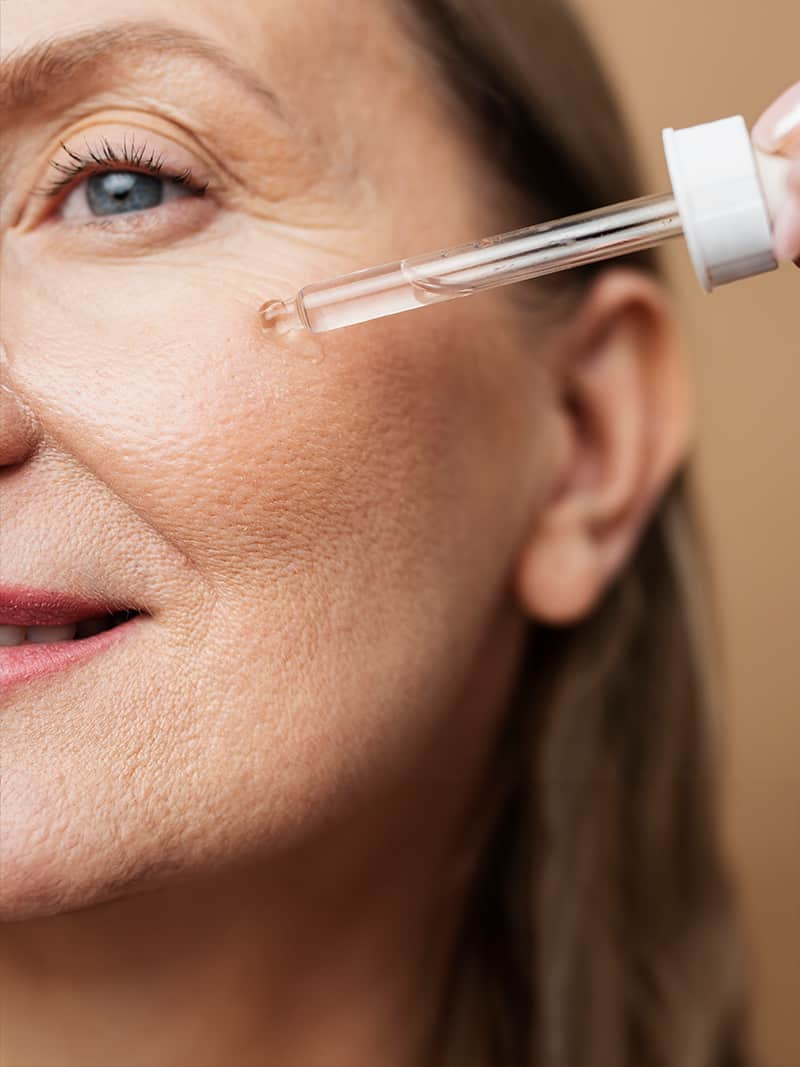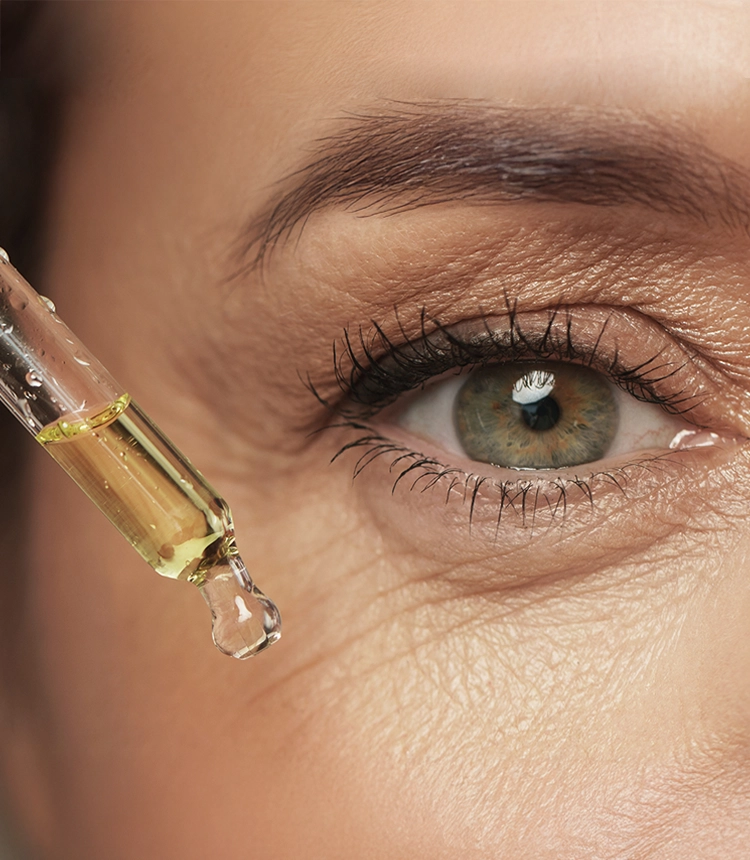How the skin changes and what it needs according to age
We develop formulas that target the signs of aging at their source
Lullage creates radiance products and formulas based on the skin's natural mechanisms, which are used to enhance radiance and a luminous complexion. How?


Repairing the skin from stress and pollution
Stress is a constant companion in modern life, and its effects on the skin are evident. When we are tired and nervous, our bodies release hormones such as cortisol, which can cause a variety of negative skin reactions. Blood flow to the skin decreases, resulting in less oxygen and essential nutrients being delivered to the skin. As a result, the skin can become dull and prone to imperfections and premature aging.
We are constantly exposed to environmental pollution, and the skin is one of the most heavily affected areas. Fine particles and pollution in the air can accumulate on the skin’s surface, clogging pores and causing inflammation. Pollution can also produce free radicals, which are unstable molecules that damage skin cells and cause elasticity loss, wrinkles, and skin spots.
The skin’s circadian clock is an internal system that regulates biological processes and their functioning throughout the day and night. This circadian clock influences cell renewal, collagen production, and other processes that are vital for the skin’s health and appearance. Stress negatively affects and can damage the skin’s circadian clock, resulting in reduced cell regeneration and a decreased ability to repair itself.
Deciphering the power of epigenetics
Skin epigenetics explains how certain genes can be turned on or off depending on the environment and our habits, directly affecting the appearance and health of the skin. In short, facial skin epigenetics is about how our actions and environment can influence our appearance and skin aging.
Epigenetics plays an important role in the skin’s aging process and response to external factors such as sun exposure and the environment. These epigenetic changes can alter genes that control the production of collagen, elastin, and other proteins required for skin health and appearance.
Cosmetic products and treatments can positively influence the skin’s epigenetic modifications. There are cosmetics that work by activating the genes responsible for collagen and elastin production, while deactivating the genes related to premature aging.
Epigenetics provides us with a new approach to addressing skin aging and keeping our skin healthy and radiant over time.


THEY WILL BE YOUR ESSENTIALS!





 <
p class="cmsp469-font-lora cmsp469-font-bold text-lg cmsp469-lg:hidden">The skin at 60: Thin, delicate, and in need of deep nourishment
<
p class="cmsp469-font-lora cmsp469-font-bold text-lg cmsp469-lg:hidden">The skin at 60: Thin, delicate, and in need of deep nourishment








